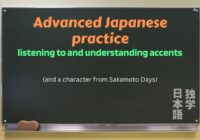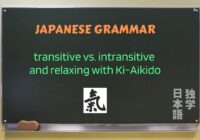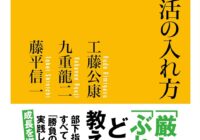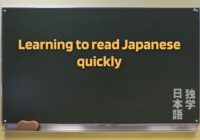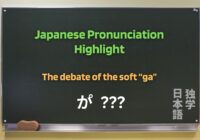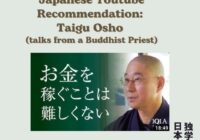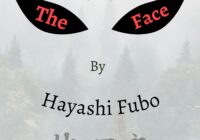Category Archives: Japanese Study: Advanced
Japanese literature release: “A Brute’s Love” by Edogawa Rampo (bilingual reader)
Edogawa Rampo(江戸川乱歩) is an author who took influence from Western culture and went on to make a huge impact in classic Japanese literature, especially in the genres of mystery and thriller fiction. Back in 2021 I published The Masquerade Ball (覆面の舞踏者), a story by Rampo about a mysterious party that is, considering the spectrum of… Read More »
Advanced Japanese practice: listening to and understanding accents (and a character from Sakamoto Days)
For beginner students I don’t recommend listening/reading a lot of Japanese where characters speak in a regional or other accent. While it’s good to have some understanding of other styles of accents beyond the typical Tokyo-dialect (東京弁), my concern is that you might unintentionally pick up something and use it without knowing it’s not typical… Read More »
Japanese Grammar: transitive vs. intransitive and relaxing with Ki-Aikido 
In Japanese, many verbs have both a transitive (where an action occurs against an object) and intransitive form (where an action occurs on its own, without an object). Even though these forms can be expressed in English to a certain extent, there can be some subtle nuances. Lately I came across a sentence in Japanese… Read More »
Japanese book review: 活の入れ方 (“Techniques for Motivation”) by 藤平信一 (Shin’ichi Tohei)
Learning to Read Japanese Quickly
Lately I’ve been doing a lot of articles related to audio or video stuff, and haven’t written too much about grammar or the process of learning Japanese. Part of the reason is a lack of ideas for content. That’s why when I received an email from a reader asking if I had any suggestions for… Read More »
Japanese Pronunciation Highlight: The debate of the soft “ga”
In recent years I have been more active on Twitter/X and a little less active on this blog, though I am still trying to keep up the pace of at least one article a week. Besides the persistency of blog articles vs. the transience of Twitter posts, there is the fact that it’s much easier… Read More »
Japanese Youtube Recommendation: Taigu Osho (talks from a Buddhist Priest)
As part of my continuing education in Japanese I’m always on the lookout for good content in Japanese that is interesting, educational, or both. While watching videos is fun, in terms of budgeting my time I find I have many more opportunities to experience content going on a walk or driving, so I tend to… Read More »
Japanese Literature Release: “The Face” by Hayashi Fubo
Japanese Netflix drama review: “Tiger & Dragon” (タイガー&ドラゴン)
For anyone who is even the least bit picky about what they watch, it’s easy to get annoyed by the lack of quality shows and movies available on Netflix, whether it is anime or live action productions. I try to limit the amount of time I spend watching Netflix, but with a few exceptions most… Read More »


